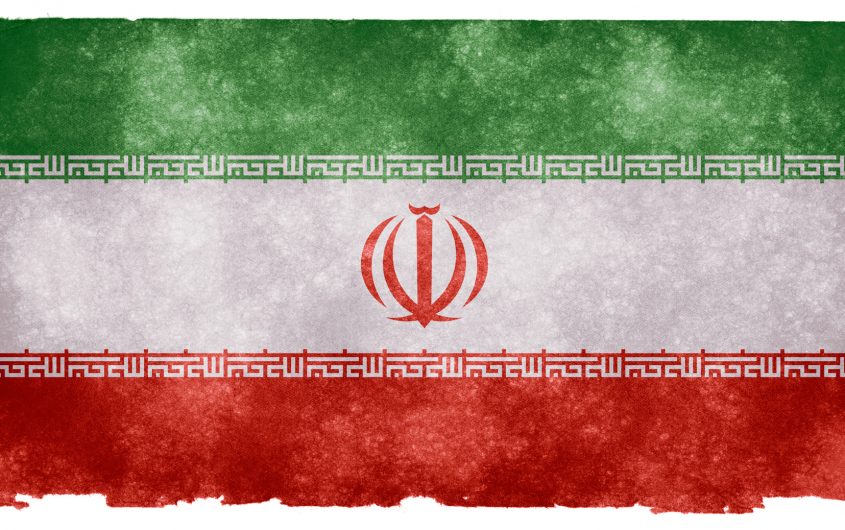
Nicolas Raymond via freestock.ca
EU Blocking Statute and U.S. Sanctions: Difficult Choices for German Companies

Axel Spies
German attorney-at-law (Rechtsanwalt)
Dr. Axel Spies is a German attorney (Rechtsanwalt) in Washington, DC, and co-publisher of the German journals Multi-Media-Recht (MMR) and Zeitschrift für Datenschutz (ZD).
The first batch of re-imposed U.S. sanctions on Iran is in effect. As a countermeasure, the EU has updated its already existing Blocking Statute with measures that entered into force on August 7. Its goal is to mitigate the impact of the U.S. sanctions on the interests of EU companies doing “legitimate business” (from the EU’s perspective) in Iran. The recently updated EU law (Regulation 96/2271) was adopted in 1996 in response to U.S. extra-territorial sanctions legislation affecting Cuba.
Q&A with Open Issues
To explain these measures, the European Commission (EC) has released a memo “Questions and Answers: entry into force of the updated Blocking Statute” that addresses a number of relevant issues: Most prominently, EU operators can recover “any damages, including legal costs, caused by the application of the laws specified in its Annex or by actions based thereon or resulting therefrom.” They can raise the claim for damages against “the natural or legal person or any other entity causing the damages or from any person acting on its behalf or intermediary,” the EC explains. However, this is easier said than done. There is no EU body or court where these damages can be claimed. Rather, the EC explains that “[t]he action can be brought before the courts of the Member States and the recovery can take the form of seizure and sale of the assets of the person causing the damage, its representatives or intermediaries. As in any litigation for damages, it will be for the judge to assess the merits of the case, or the causal link.” This leaves it up to the national courts to rule as they please, namely determining what the damage is, who has caused the damage, and what the duties of the plaintiffs are to mitigate the damage. Without going into the legal details, this will be a difficult case to win in court.
Moreover, EU operators must inform the EC “within 30 days since they obtain the information – of any events arising from listed extra-territorial legislation that would affect their economic or financial interests.” This provision in the Q&A also triggers a lot of new issues, such as what must be reported by whom and when. The general impression is that the EU Blocking Statute is not clear. This is why the UK Financial Markets Law Committee has formed a working group to prepare a paper on it. At present, that working group will only list the uncertainties. The German authorities have established an “Iran hotline” for their industry but it is doubtful that this will resolve the issues.
German Blocking Statute Back to the Front Burner
Germany is a peculiar case to watch with its own blocking statue in Sec. 7 AWV (Aussenwirtschaftsverordnung) that states: “Any declaration in foreign trade, by which a national [company or person] participates in a boycott against another state (boycott declaration) is prohibited.” The term “boycott declaration” is traditionally interpreted broadly. A statement of a website not to do business with Iranian companies or blacklists in the terms and conditions may fall under it. There are no restrictions on the affected persons and territory. Sec. 7 AWV that has come to the forefront again though the Iran sanctions. It raises some tricky compliance issues for German companies and potentially U.S. companies with qualified branches and/or subsidiaries in Germany. For instance, provisions common in loan documentations (e.g., mandatory prepayment obligations, representations and undertakings regarding compliance with sanctions) may not be sufficiently specific unless such sanctions-related provisions are adapted. A similar issue may arise if lenders request sanctions wording that may put a borrower in breach of Sec. 7 AWV and/or the EU Blocking Statute. Companies may need to consider a carve-out mechanism that is likely to be accepted in foreign trade. In this case, the problematic statement is provided with a qualifier or disclaimer that the declarations of the company only apply to the extent that they are not inadmissible pursuant to Sec. 7 AWV. It has also been suggested in Germany that Sec. 7 AWV should generally not apply if a German company issues boycott declarations solely to avert the damage which the company would otherwise face due to the foreign sanctions regime. In other words, if the German company is “forced” to follow the U.S. sanctions or otherwise face a hefty penalty by U.S. regulators, then German courts and regulators should be lenient and should not apply Sec. 7 AWV and not impose penalties. The argument is that in these cases the participation in a foreign boycott or sanctions regime is not intentional, but is only an indirect consequence of compliance with foreign law which is forced upon the German company. However, this suggested interpretation has not yet been tested and German companies will likely be forced to balance the conflicting legal provisions to avoid being caught in the middle of the political wrangling over the sanctions.








